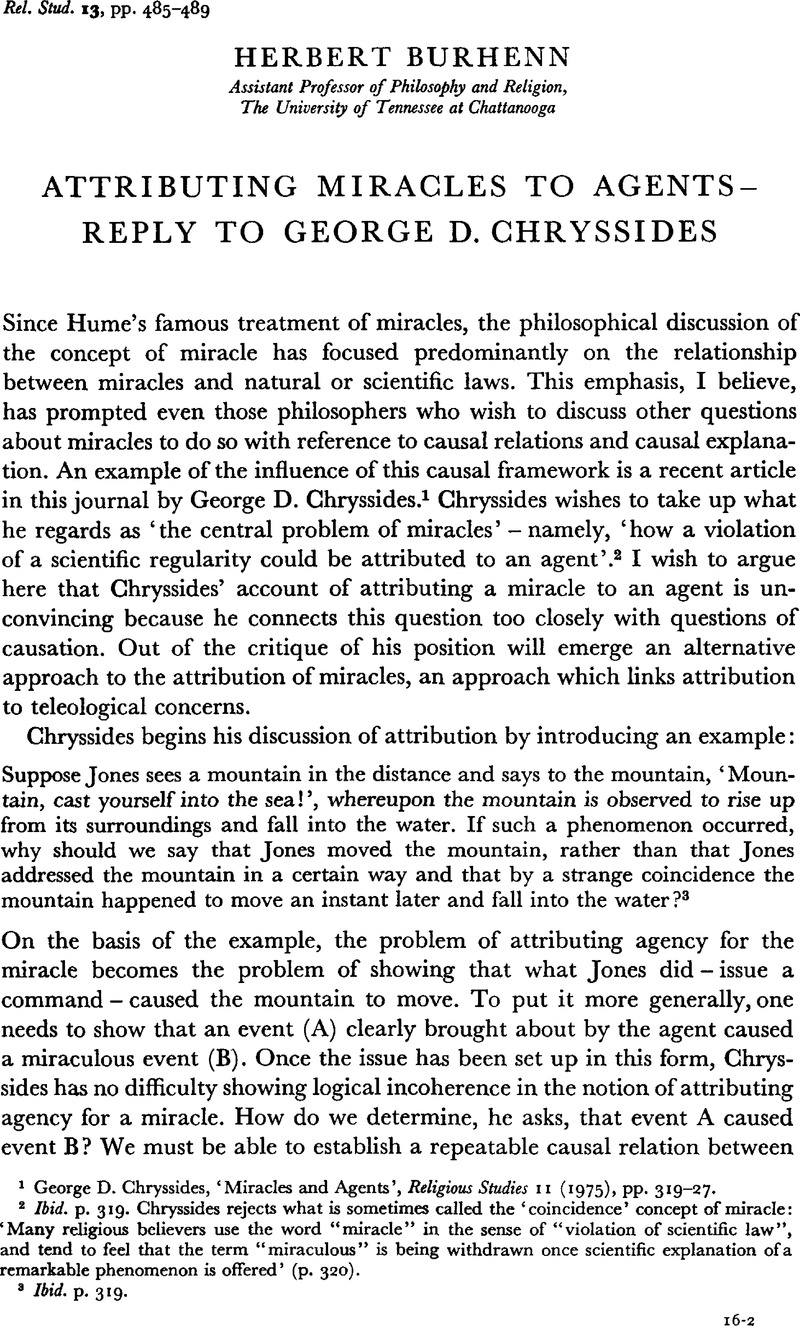Article contents
Attributing Miracles to Agents – Reply to George D. Chryssides
Published online by Cambridge University Press: 24 October 2008
Abstract

Information
- Type
- A Reply To
- Information
- Copyright
- Copyright © Cambridge University Press 1977
References
page 485 note 1 Chryssides, George D., ‘Miracles and Agents’ Religious Studies 11 (1975), pp. 319–27.CrossRefGoogle Scholar
page 485 note 2 Ibid. p. 319. Chryssides rejects what is sometimes called the ‘coincidence’ concept of miracle: ‘Many religious believers use the word “miracle” in the sense of “violation of scientific law”, and tend to feel that the term “miraculous’ is being withdrawn once scientific explanation of a remarkable phenomenon is offered’ (p. 320).
page 485 note 3 Ibid. p. 319.
page 486 note 1 Ibid. p. 321.
page 486 note 2 Ibid. p. 322.
page 486 note 3 Danto, Arthur C., ‘Basic Actions’, American Philosophical Quarterly 2 (1965), pp. 141–8.Google Scholar
page 488 note 1 See, for example, Woods, G. F., ‘The Evidential Value of Biblical Miracles’, in Moule, C. F. D., ed., Miracles (London: A. R. Mowbray and Co., 1965), p. 25.Google Scholar
page 488 note 2 E.g. Fridrichsen, Anton, The Problem of Miracle in Primitive Christianity, transl. Harrisville, Roy A. and Hanson, John S., Minneapolis: Augsburg Publishing House, 1972 (originally published in French 1925).Google Scholar
- 1
- Cited by

